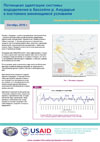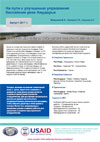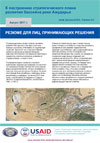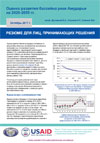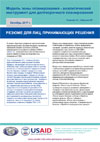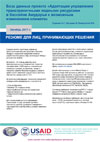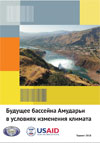Transboundary water management adaptation in the Amudarya basin to climate change uncertainties
The United States Agency for International Development (USAID) is the U.S. Government's preeminent foreign assistance agency. The agency is dedicated to helping nations meet the needs of their citizens by providing health-care, education, and economic opportunity to end extreme poverty and promote democratic, resilient societies. The U.S. Global Development Lab (The Lab) at USAID is bringing together a diverse set of partners to discover, test, and scale breakthrough solutions to address critical challenges in international development. A key element of this strategy is the support of scientific and technological research through the Partnerships for Enhanced Engagement in Research (PEER) program. PEER is a competitive awards program that invites scientists in developing countries to apply for funds to support research and capacity-building activities on topics of importance to USAID and conducted in partnership with U.S. Government-funded and selected private sector partners.
The goal of this project is to build adaptive capacity of the countries sharing the Amudarya basin to manage effectively their transboundary waters under climate change and other uncertainties.
Objective to study in a holistic manner transboundary water management issues in the Amudarya basin for the long run under conditions of climatic and other changes along with national plans on irrigated agriculture and hydropower development.
Project Results
Key Project Results Regarding the Current and Future Challenges in the Amu Darya Basin
Workshops, Trainings
SIC ICWC in Central Asia presented the PEER Project results at the 8th World Water Forum in Brazilia
Meeting on the Project (8 November 2017, Tashkent)
PEER Program Roundtable (9 June 2017, Tashkent)
PEER Program Roundtable (3 April 2017, Tashkent)
Meeting on the Project (23 February 2017, Tashkent)
Workshop on the Project (29 December 2016, Tashkent)
Workshop on the Project (26 October 2016, Tashkent)
